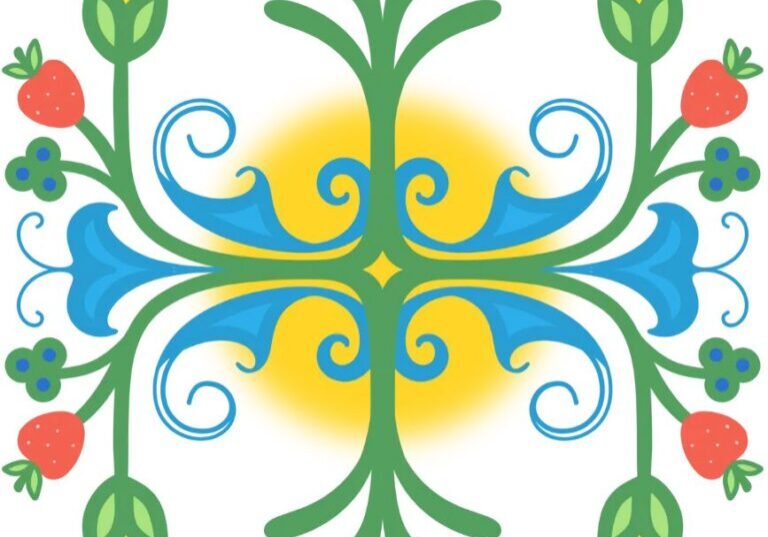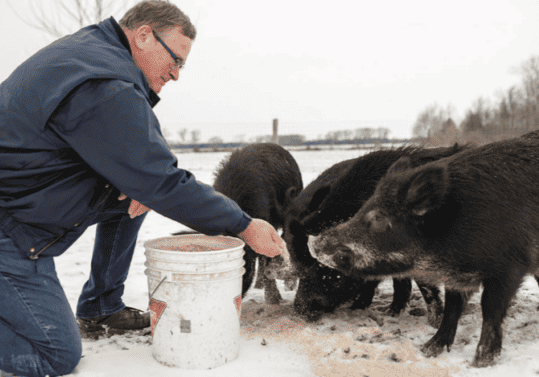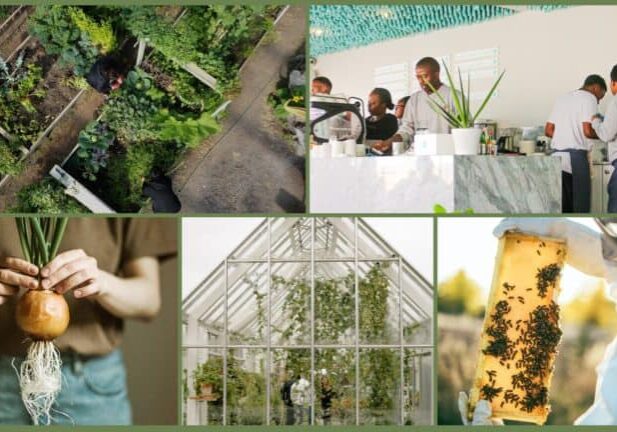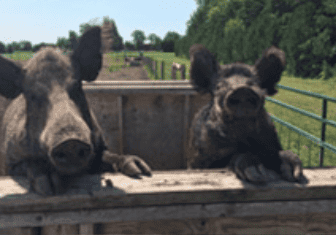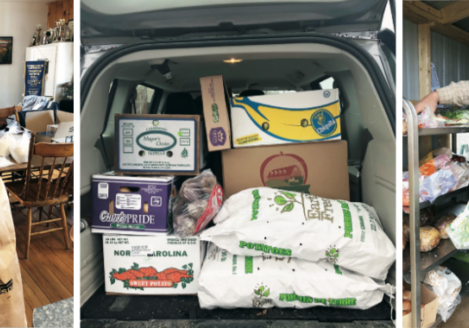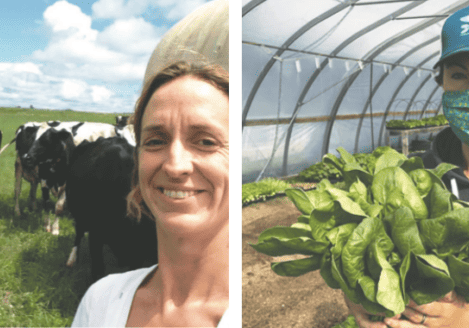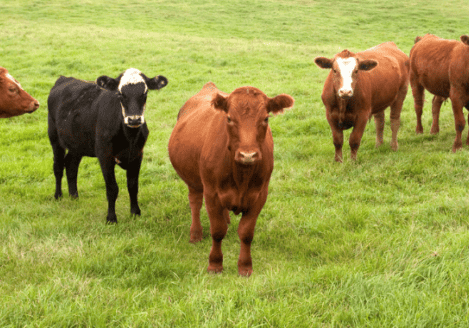Food Sovereignty: Maajiigin Gumig & Lambton County Library Native Plant Kit
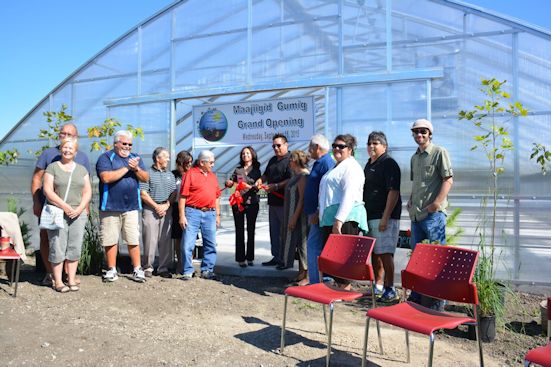
National Farmers Union – Ontario Newsletter
The Rural Voice | September 2025
Special thanks to Aaron Plain – Greenhouse Supervisor at Maajiigin Gumig, and Heather Tulloch – NFU-O Local 328 executive member and Lambton County Library staff for their participation in this month’s Rural Voice article.
It is no secret that many communities across Ontario struggle to achieve the level of food sovereignty they once had, even 50 years ago. Food sovereignty is the right of peoples to healthy, culturally appropriate food produced through ecologically sound and sustainable methods, and the right to define and control their own food and agriculture systems. Things like industrialized agriculture, land grabbing, development, and a population shift from rural to urban living are just some of the contributing factors of the notable decline in food sovereignty that we see to date. As the threat of extreme food sovereignty loss grows, especially with the rise of grocery store prices for healthy, nutritious, and culturally appropriate foods, some communities are focusing their efforts on achieving stronger food sovereignty for themselves, and future generations.
Maajiigin Gumig – translating to “place where plants start to grow” in English, is a native plant greenhouse focusing on growing native plants for the Aamjiwnaang community and surrounding Sarnia-Lambton Area. The Aamjiwnaang First Nation (formally known as Chippewas of Sarnia) is a First Nations community of about 2500 Chippewa (Ojibwe) Aboriginal peoples (900 of which live on Reserve). They are located on the St. Clair River, three miles south of the southern tip of Lake Huron in the city limits of Sarnia, southwestern Ontario, Canada. Maajiigin Gumig is operated by the Economic Development Department at Aamjiwnaang First Nations, which opened via a Grand Opening Ceremony in 2015. Some initiatives of the greenhouse include native plant rescue and restoration, seed collection and cleaning, native plant propagation, multi-generation teaching and learning, ecology stewardship education, and reconnecting with the Earth. The greenhouse is also a gathering place for learning how to help native plants thrive once planted.
This year, Maajiigin Gumig partnered with Lambton County Library to create a native plant kit for the Lambton County Library’s Summer Reading Challenge for children and members of the community who visit the library. 3,000 kits have been created, featuring hand-collected seeds from plants in Aamjiwnaang First Nation traditional territory and a booklet that includes the Turtle Island creation story and plant names in Anishinaabemowin and English.
The Maajiigin Gumig and Lambton County Library native plant kit is a community achievement for food sovereignty. It provides educational resources on Indigenous knowledge in relation to native food and medicine in the region, with teachings about native plants, seed collection, and ecological stewardship. These are all essential components in decolonizing agricultural practices both big and small, and to the development of stronger food sovereignty moving forward. With a society that is more educated about food systems, native plants and medicine, and the relationship between these plants and the earth, there is hope for a future with more care for these interconnected systems, in agriculture and beyond.
Learn more about Maajiigin Gumig “Place where plants start to grow”!
greenhouse@aamjiwnaang.ca
www.maajiigingumig.ca
Facebook: aamjiwnaang greenhouse
Instagram: aamjiwnaang.greenhouse
1972 Virgil Ave, Sarnia, ON N7T 7H5
519-330-0400
